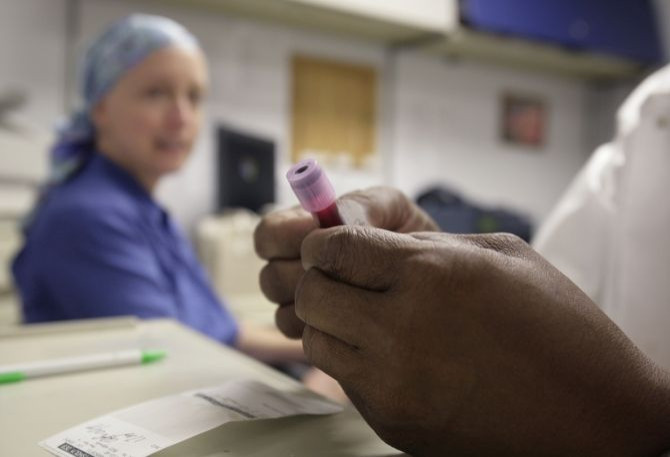Have Japanese Researchers Invented the Cure for Cancer and HIV?

Though great therapeutic advances have been waged in the fight against cancer and HIV, neither illness has a cure. That may have just changed, with a treatment developed by researchers at the University of Tokyo, RIKEN Center for Allergy and Immunology and the National Institute of Advanced Industrial Science and Technology. Best of all, the technique boosts the power of the patient's own immune system, meaning that the chances of transplant rejection is very low.
In a study published in the journal Cell Stem Cell, the researchers describe their focus on cytotoxic T-cells, which can recognize the markings of a cancer cell and attack them immediately. The body makes these fighter cells by itself but is underequipped against diseases like cancer and HIV. Researchers hope that injecting additional cells can invigorate the immune system to fight off these diseases.
Two experiments were conducted - one targeting skin cancer and the other targeting HIV, according to the BBC. The team extracted T-cells that were fighting against the illness and converted them into stem cells, allowing the cells to dramatically increase in number. Then those stem cells were converted back into T-cells. In theory, these new T-cells should have been equipped to fight against skin cancer and HIV, respectively.
Scientists said that the findings were encouraging, but still at an early stage. It remains unclear whether the re-engineered T-cells could actually fight against the infections for which they were created. Furthermore, even if they could serve their purpose, it remains to be seen whether the T-cells would be safe.
John Burn, from the Institute of Genetic Medicine at Newcastle University voiced yet another concern. "Even if these T cells are effective, it could prove very challenging to produce large quantities safely and economically," he said. "Nevertheless, there is real promise of this becoming an alternative when conventional therapies have failed."
Published by Medicaldaily.com



























